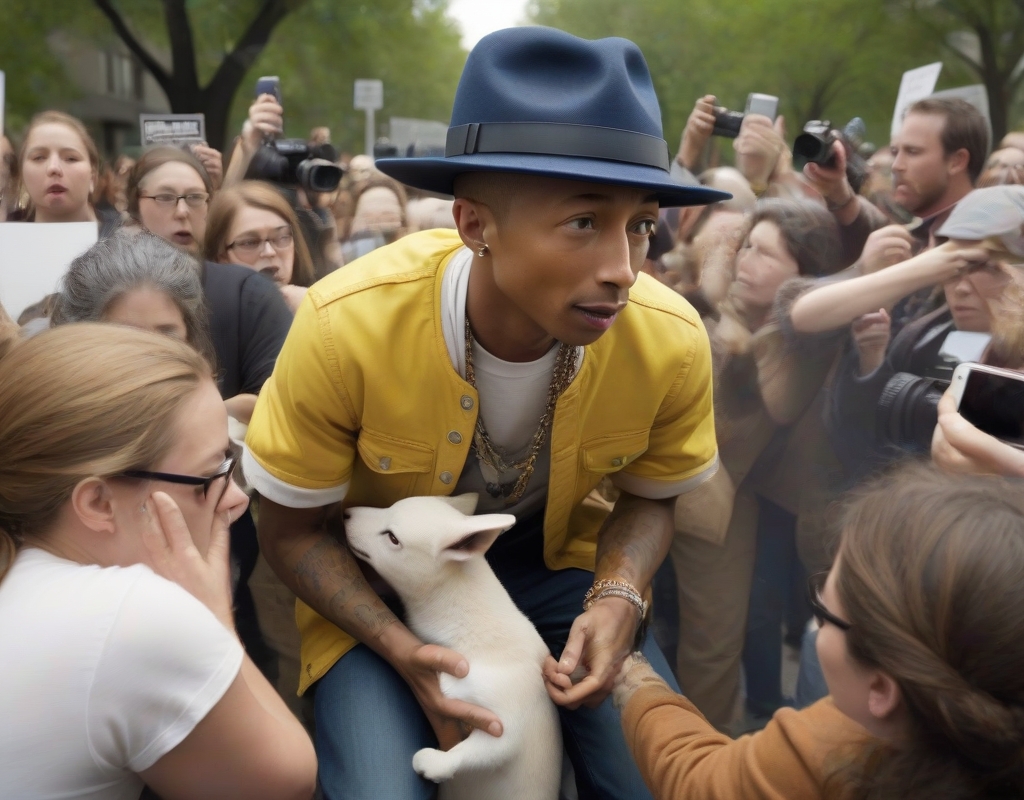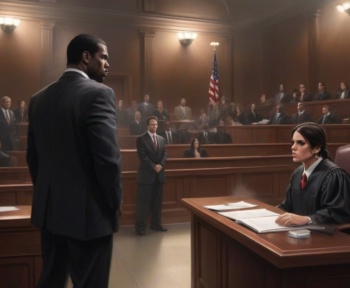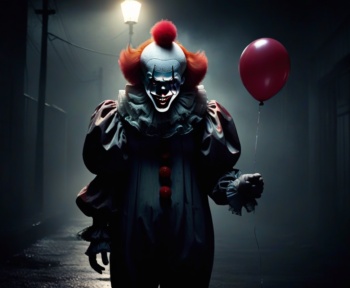Pharrell Williams recently showcased an exceptional approach to conflict resolution during an encounter with animal-rights activists which could have easily escalated into a contentious situation. In a move that garnered attention for its compassion and understanding, Williams opted to respond to the protesters’ vocal criticisms with offers of hugs, highlighting his preference for fostering dialogue over division.
During a public appearance, the scene unfolded as Williams was approached by a group of vocal animal-rights advocates. Known for his calm and collected demeanor, the musician and fashion icon responded not with defensiveness but with an openness that defused the tension. By choosing to embrace rather than exclude, Williams not only alleviated the immediate discord but also expressed a willingness to listen and engage with the concerns being voiced, which were centered around issues of animal rights within the fashion industry.
This display of empathy was significant, as Williams encouraged onlookers to recognize and respect the protesters’ commitment to their cause, thereby shifting the interaction from potential confrontation to one of mutual acknowledgment. This approach demonstrated Williams’ commitment to handling disputes with a level of maturity and understanding that is often absent in celebrity encounters with activists.
Williams’ encounters with activists are not isolated events. He has faced criticism before, notably from the organization People for the Ethical Treatment of Animals (PETA) concerning his use of animal fur and products in his fashion collaborations. In previous incidents, such as during a film premiere, he was called out by protesters but maintained his poise, responding to disruptions not with irritation but with affirmations of their right to protest, coupled with reminders of the importance of dialogue over conflict.
In these interactions, Williams did not just physically embrace his critics; he also embraced a broader philosophical approach that acknowledges the importance of voices of dissent within transformative processes. His reactions go beyond mere conflict management; they reflect a genuine consideration for systemic change, particularly concerning ethical issues in fashion—a sector where he wields significant influence.
In his role as a creative leader for renowned brands, Williams has openly recognized the need for thoughtful evolution concerning the use of animal products in fashion. His responses hint at a strategic, considerate approach to reforming industry practices. He has articulated an understanding of the complexities involved in shifting longstanding industry norms but remains committed to initiating change, invoking patience and strategic action over abrupt shifts that might compromise artistic integrity or business viability.
Williams’ endeavors to bridge the gap between high fashion and ethical responsibility are reflective of a larger trend within the fashion industry which has increasingly come under scrutiny for its environmental and ethical practices. Over recent years, there has been a discernible shift toward more sustainable and ethically sound practices within the industry, influenced by both growing consumer awareness and the vigorous advocacy of animal-rights groups.
Experts in ethical fashion underscore the potential for significant shifts in industry standards, emphasizing the role of influential figures like Williams in spearheading change. Sustainable practices and ethical source materials are being championed as essential elements of modern fashion, paralleling shifts across other sectors such as food and technology where sustainability is becoming increasingly prioritized.
Pharrell Williams’ forward-thinking actions and his vocal advocacy for balanced, inclusive approaches to controversy and change are helping to mold a new narrative in the fashion industry. His commitment to involving different voices and perspectives in the conversation around ethical fashion not only amplifies the call for change but also demonstrates a way forward that does not shy away from the complex realities of industry transformation.
As Williams continues to navigate his roles as a musician, designer, and influencer, his actions are setting precedents for others in the industry. By aligning his creative pursuits with a conscientious approach to ethics and by fostering open, constructive dialogues around contentious issues, Williams is contributing to the reshaping of the fashion industry into a more considerate, responsive, and ethically mindful sphere.
In embracing the dual roles of an innovator and a mediator, Williams epitomizes how influential figures can effectively balance personal, professional, and ethical concerns. His interactions with animal-rights protesters highlight a crucial message: change, particularly within realms as dynamic and influential as the fashion industry, requires not just critique but also openness to dialogue, understanding, and collective progression. This incident with the protesters is not merely a standalone event but a public affirmation of Williams’ broader commitment to fostering a more empathetic and ethically engaged society. Through his example, Williams champions a model of leadership that is as much about artistic creativity as it is about ethical responsibility, proving that being at the forefront of fashion can also mean leading the charge for a more compassionate world.




